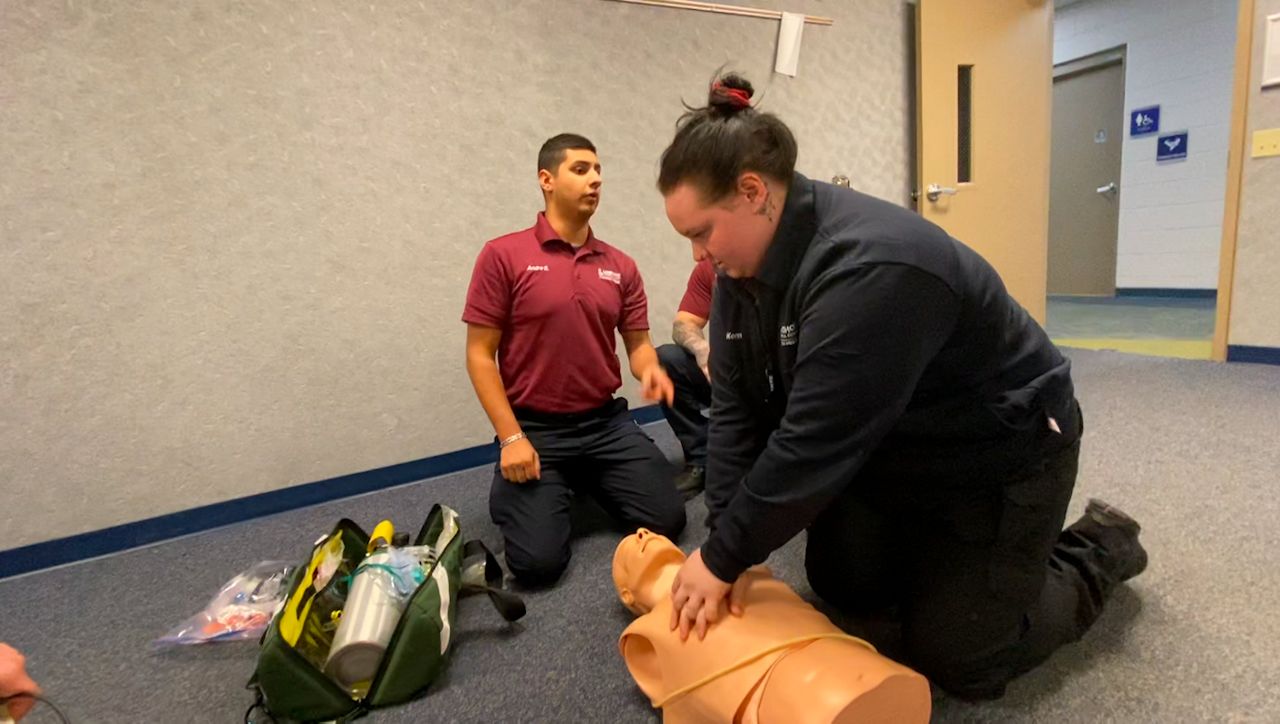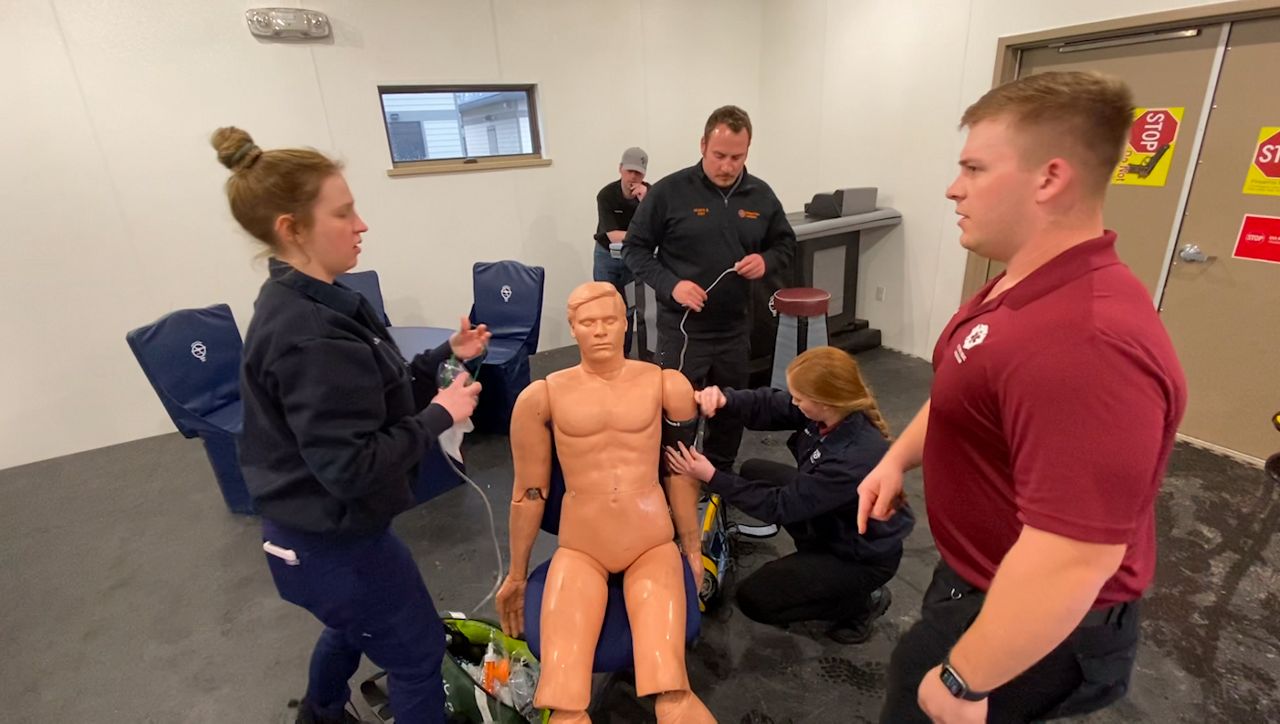CLEVELAND, Wis. — McKenna Ferry keeps a steady rhythm as she performs CPR as part of a training scenario.
She’s one of 30 students around the state being trained by Lakeshore Technical College to become a paramedic.
“It’s challenging. I always like a challenge,” Ferry said about the year-long program. “It definitely keeps you on your toes and makes you think critically. That’s the whole field, critical thinking.”
She switched paths at the college to pursue a future as a paramedic.
“I was actually in the nursing program first and I just figured that wasn’t for me, but I still wanted to do something where I was helping people,” Ferry said. “With emergency medicine, you get the excitement of it. It’s not the same thing every day.”

The college said it’s seen almost a 90% increase in enrollment in the program in the past year.
Ryan Skabroud, the college’s dean of Public Safety and Energy, said that’s due in part to partnerships with rural colleges in Rhinelander and Fennimore.
“A lot of the more advanced skills that could truly be life or death emergencies, these paramedics are able to implement these life-saving measures right in those rural communities,” he said. “They may have a 40-minute transfer back to the community hospital, but what we’re able to do is make a difference when we can and when it’s important.”
The need for paramedics is state wide and includes communities both large and small.
“Everyone has a need for paramedics and EMS professionals right now,” Skabroud said. We’re seeing a number of individuals who are leaving the workforce for other opportunities and a lot of our smaller communities are having trouble staffing their community ambulances.”
For students like Dylan Dodson, there’s a sense of giving back to the community.
“Honestly, it’s a challenge. I never thought a couple years ago I’d ever get into anything medical,” the U.S. Army veteran said. “It’s definitely a challenge and definitely rewarding when you succeed.”

Ferry is expected to graduate in December. After that, she plans to take her new skills out into the field.
She has several more months of training ahead of her.
“It’s trying to get to know every emergency and trying to be prepared for it,” Ferry said. “Then bringing that back to the community, wherever you’re going to work, and trying to help that one person you’re focusing on.”



